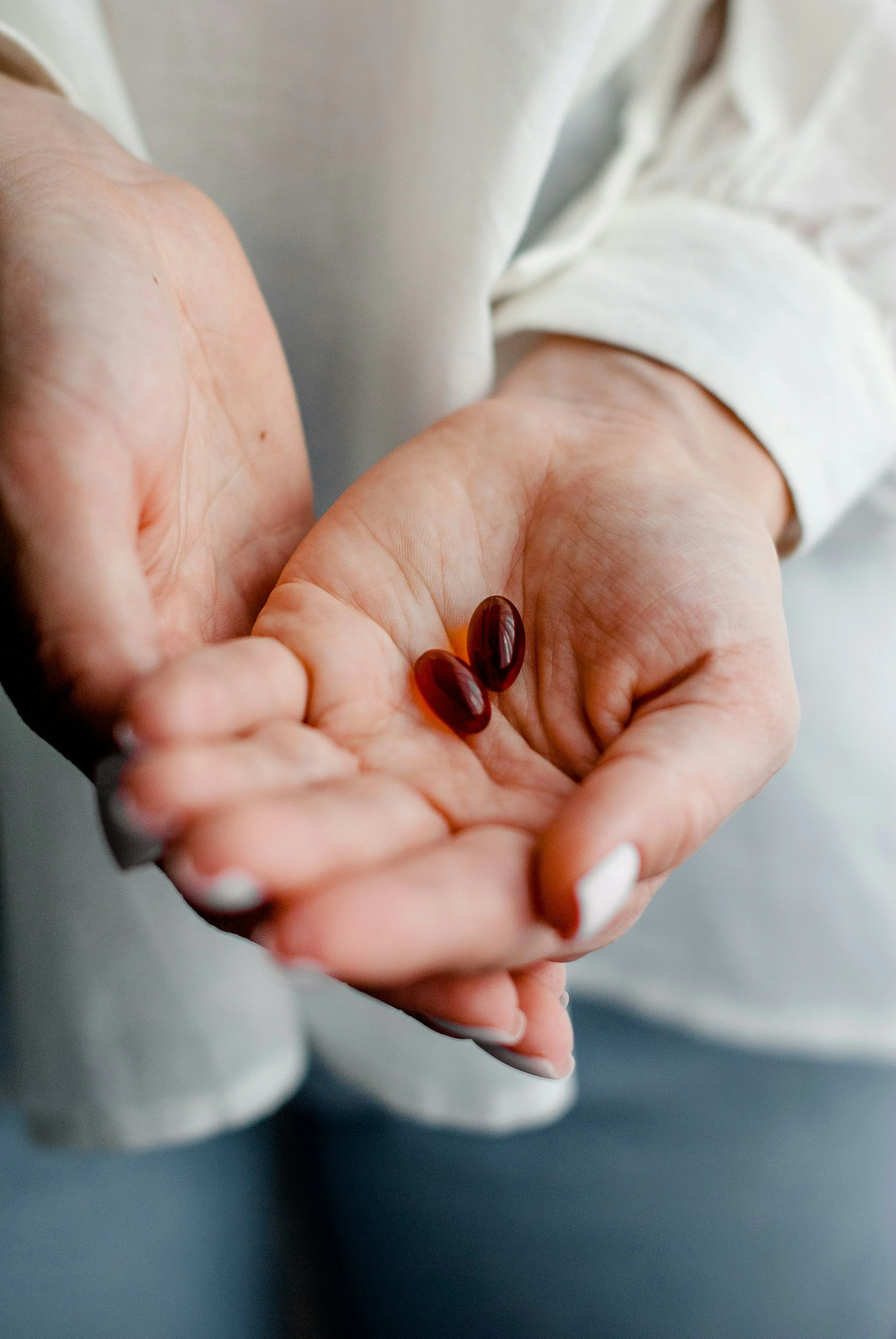Best PCOS Supplements: A Dietitian’s Guide
If you’ve been diagnosed with PCOS (polycystic ovary syndrome), you are not alone — it affects an estimated 6–12% of women of reproductive age in the U.S. (CDC). Many women wonder: Do supplements really help with PCOS symptoms?
Certain supplements can support hormone balance, improve insulin sensitivity, lower inflammation, and help manage symptoms like irregular periods, acne, and weight gain. But not all supplements are equally effective — and more is not always better.
As a registered dietitian, I created this guide to help you choose the best PCOS supplements, backed by science and clinical experience.
Why Supplements Matter for PCOS
PCOS is a hormonal disorder that can affect your ovaries, metabolism, and mental health. Common features include irregular ovulation, high androgens, and ovarian cysts, often linked to insulin resistance and chronic inflammation (NIH).
How PCOS Affects Your Body
Insulin resistance: Up to 70% of women with PCOS have it (PubMed).
Chronic inflammation: Can worsen acne, fatigue, and weight gain (PubMed).
Hormone imbalance: Causes acne, hair thinning, and excess hair growth.
Can Supplements Help with PCOS?
Yes. Research shows that targeted supplements can improve insulin sensitivity, reduce inflammation, and even improve fertility. They work best as part of a healthy lifestyle, including a balanced diet, exercise, sleep, and stress management.
Need help building a full plan? Explore my PCOS meal plans or schedule a consultation.
Best PCOS Supplements
Here are the top supplements backed by research:
Inositol for PCOS
One of the most effective supplements for PCOS is inositol (myo-inositol and D-chiro-inositol).
Improves insulin sensitivity
May restore ovulation and regular cycles
Supports egg quality and fertility (PubMed)
Recommended dosage: 2–4 grams per day of myo-inositol.
Find quality inositol supplements on my Amazon storefront or through Thorne.
Vitamin D and PCOS
Many women with PCOS have low vitamin D, which influences insulin sensitivity, mood, and hormone balance.
Supports menstrual regularity
Helps bone and immune health
Improves insulin response (NIH)
Get your levels tested and supplement if needed. Learn more about testing on my nutrition services page.
Sports Research Vitamin D3 + K2
Omega-3 Fatty Acids
Omega-3s (EPA and DHA) reduce inflammation and may help lower androgen levels.
Reduces inflammation and testosterone
Supports ovulation (PubMed)
Benefits heart and brain health
Food sources include fatty fish, flaxseed, and walnuts. Supplements are available through Thorne and my Amazon storefront.
Viva Naturals Triple-Strength Omega-3 Fish Oil
Magnesium and PCOS
Magnesium helps regulate blood sugar, supports stress response, and may ease PMS symptoms.
Improves insulin sensitivity
Reduces stress and promotes sleep (NIH)
Food sources include leafy greens, nuts, and seeds.
Probiotics and Gut Health
Women with PCOS may have gut microbiome imbalances (PubMed).
Supports digestion and hormone metabolism
May improve insulin sensitivity
Lowers inflammation
Look for a multi-strain, high-CFU probiotic. Trusted brands are available on my Amazon storefront and Thorne.
Other Supplements to Consider
Zinc: May improve acne and hair loss.
NAC (N-acetylcysteine): Supports insulin sensitivity and ovulation.
Chromium: Helps with glucose metabolism.
Spearmint tea: May reduce testosterone and improve hirsutism (PubMed).
For a curated list of products, visit my PCOS supplements guide.
How to Choose the Right PCOS Supplements
Quality Matters
Choose supplements that are:
Third-party tested (NSF, USP)
Free of unnecessary fillers
At clinically effective doses
Find trusted products on my Amazon storefront or order directly from Thorne.
When to Talk to a Professional
Not every supplement is right for everyone. Some may interact with medications or worsen symptoms.
Book a consultation with me on Nourish or explore my PCOS nutrition guides.
Frequently Asked Questions
What are the best supplements to take for PCOS?
Inositol
Vitamin D
Omega-3s
Magnesium
Probiotics
Which vitamins help with PCOS symptoms?
Vitamin D
B vitamins (especially B12 if on metformin)
Zinc
Can supplements cure PCOS?
No. Supplements help manage symptoms but do not cure PCOS.
Is inositol good for PCOS?
Yes. It improves insulin sensitivity, restores cycles, and supports fertility (PubMed).
Supporting PCOS Beyond Supplements
Supplements are just one part of managing PCOS.
Follow a balanced diet — see my meal plan subscriptions or PCOS meal plans.
Move your body regularly.
Manage stress with yoga, meditation, or therapy.
Get enough sleep and hydration.
Final Thoughts
Supplements can play an important role in managing PCOS symptoms, but finding the right ones for your body is key.
If you’re overwhelmed or unsure where to start, I can help you create a personalized, research-backed plan to balance your hormones and feel your best.
Book a consultation with me on Nourish, or explore my PCOS meal plans, supplements, and nutrition guides.
Find trusted, high-quality supplements on my Amazon storefront or Thorne.
Your PCOS does not define you — with the right tools and support, you can feel empowered and in control.



